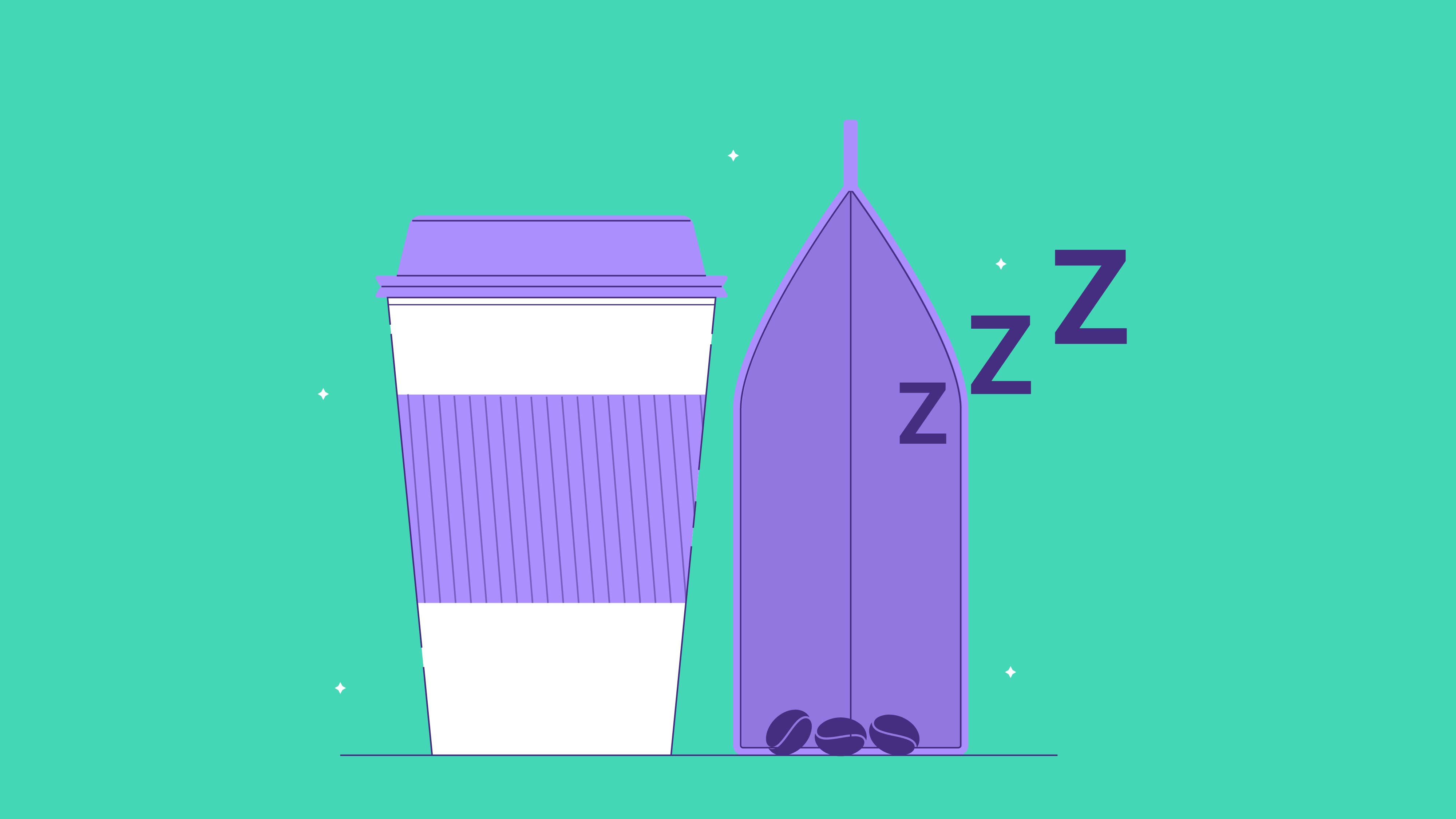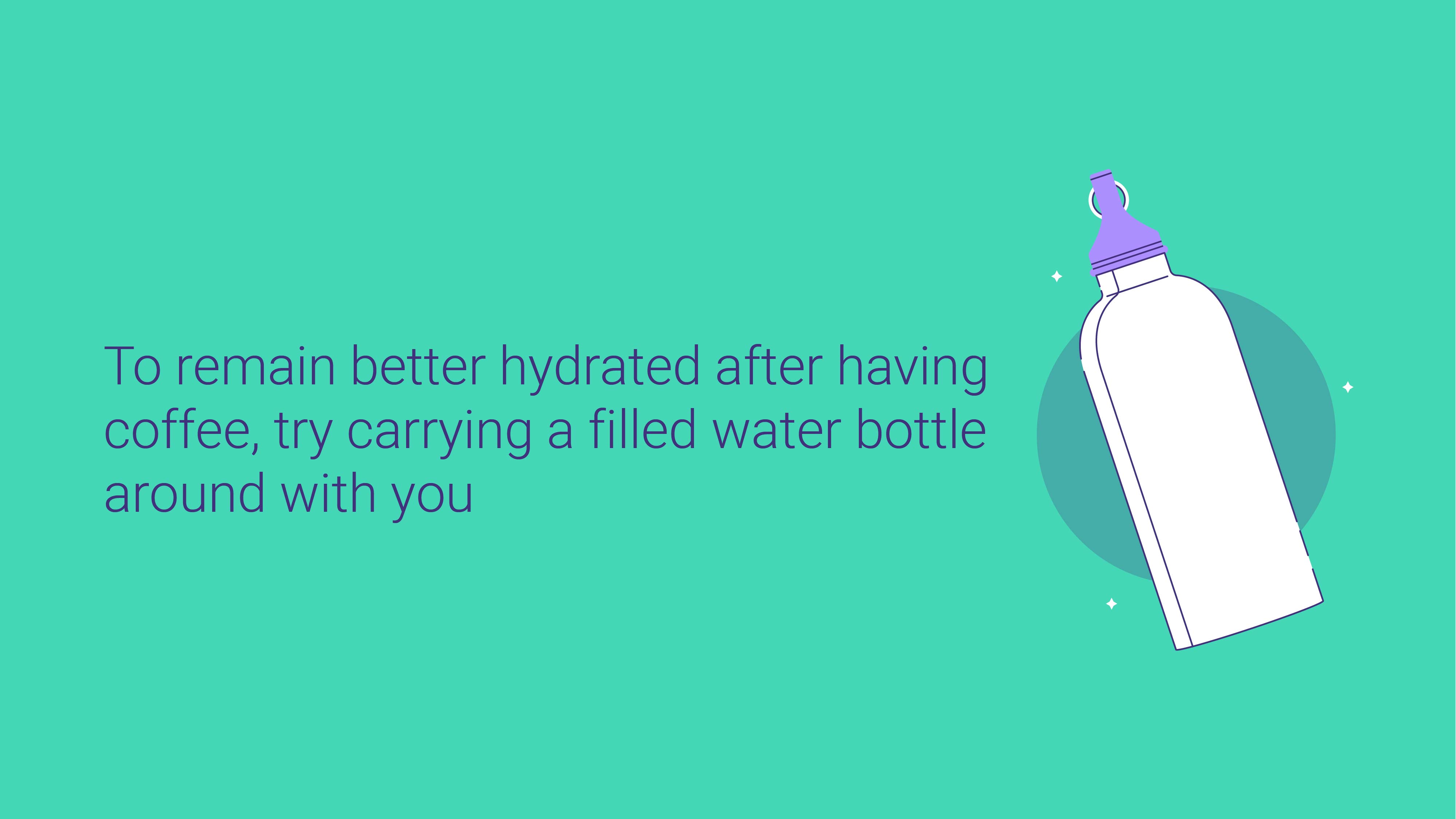
5 Reasons Coffee Can Make You Sleepy
Caffeine is a known stimulant meant to increase your alertness and energy levels. When people drink a cup of coffee, they expect to feel energized and ready for their day. Strangely enough, however, some people may find their cup of joe leaves them yawning and feeling drowsy. But why?
Coffee-induced exhaustion is not rare and has various causes. While it seems like quite a paradox for caffeine to make you tired, caffeine affects your body in different ways, thus altering its effect on different individuals. Luckily, there are ways to offset these negative and tiring reactions to your cup of coffee.
However, before we can dive into tips for reaping the energizing benefits of coffee, let’s first discuss why and how coffee can make you feel tired in the first place.
1. Sweeteners In Coffee Cause Sugar Crashes
Although coffee is tastier with sweeteners, these additives can counteract the benefits of coffee. Sugar, syrups, honey, whipped cream, and milk are all capable of diminishing your caffeine buzz and common culprits for sugar crashes.
The body processes sugar faster than caffeine, so the instant energy spike you feel after drinking a flavored coffee drink is more likely due to the amount of sugar you’ve ingested, not the actual caffeine within the drink. When your body metabolizes more sugar than it needs, it produces extra insulin in an effort to balance your blood sugar. As a result, however, your blood glucose lowers and causes your energy levels to fall (a.k.a. A sugar crash), leaving you tired, hungry, and irritable.
2. Caffeine Blocks Adenosine Receptors
One of the ways coffee works to keep you awake and alert is by blocking a chemical in your body known as “adenosine.” It’s a neurotransmitter in your central nervous system meant to regulate your body’s natural sleep-wake cycle. The chemical works by binding to its specific receptors in the brain, causing fatigue to prepare you for sleep.
The caffeine in coffee prevents adenosine from completing this task by binding to the adenosine’s receptors and taking the place of the chemical. However, just because these receptors are blocked doesn’t mean adenosine production stops. While caffeine lingers in your brain, adenosine continues to build in the background. So once that caffeine wears off, the accumulated adenosine can rush to those receptors and make you feel tired.
3. Coffee Dehydrates You
As many frequent coffee drinkers know, coffee causes you to use the restroom quite a bit. Coffee is a diuretic, meaning it doesn’t cause dehydration, but will send you to the restroom often. If you’re using the restroom so frequently but not drinking enough water to balance the loss of fluids, you may become dehydrated.
Being dehydrated is linked to exhaustion, dry mouth, and dizziness, a potential factor for your tiredness post-coffee. If you’re unsure whether or not your drowsiness is caused by dehydration, check the color of your urine as dark or discolored urine is a sign your body is lacking water.
4. You’ve Developed a Caffeine Tolerance
After even a few days of frequent coffee consumption, your body becomes tolerant to the caffeine entering it and the effects weaken. A small study found that after only 15 days of frequent caffeine consumption, the effects of caffeine on participants lessened.
When you first begin drinking coffee, it’s a foreign substance to your body and is not metabolized effectively. Though, after habitually drinking caffeine, a tolerance is developed because your body will begin producing more adenosine—the fatigue-inducing brain molecules—to counteract the caffeine and leave you still feeling tired.
5. Contaminants In Your Coffee
There’s a chance your body’s adverse reaction to coffee is not due to a poor caffeine tolerance, but rather poor-quality coffee. Cheaply-made coffee may contain contaminants such as mold, leading to high levels of mycotoxins in your drink. Mycotoxins are toxic compounds produced by fungi and, when ingested, can cause brain fog and fatigue.
Based on where your coffee is supplied, you may be consuming toxic coffee, as beans grown in humid countries are susceptible to mold infestations. A study of raw, unroasted coffee beans produced in Brazil—a tropical country where fungal development flourishes—found 91.7 percent of samples contained mold. Drinking moldy coffee is not only gross, but it leaves you exhausted and struggling to concentrate.
How To Minimize The Negative Effects Of Coffee
It’s not easy to completely cut coffee out of your diet. It’s delicious and some of us feel dependent on coffee to remain energized during long days. Regardless, nobody wants the negative side effects paired with coffee. Luckily, there are several steps you can take to offset any coffee-induced drowsiness.
Moderate Your Intake
For adults, the Food and Drug Administration recommends having no more than 400 milligrams (mg) of caffeine per day. This equals approximately four 8-ounce cups of brewed black coffee, roughly varying in about 80 to 100 milligrams of caffeine. Most people don’t drink this much coffee regularly, but if you’re a frequent coffee-drinker you may be having more than this without realizing.
Caffeine is present in many forms, including chocolate, so be conscious not to eat or drink unwanted caffeine. Limiting your caffeine consumption lessens its potency and helps avoid developing a tolerance.
Skip The Sugar
Albeit sugary coffee drinks are arguably the tastiest, their high sugar levels aren’t doing anything to help your exhaustion. Sugar is best enjoyed in moderation, and if you truly need sugar to enjoy your coffee, only use a small dash of it to prevent a potential sugar crash.
Black coffees are the best option, health-wise, though can be jarring if you’re used to sugary drinks. However, plain milk or alternative sweeteners can give your taste buds a treat while still protecting your body.
Stay Hydrated
As mentioned earlier, coffee can lead to dehydration when consumed with enough fluids. When you’re constantly using the restroom and flushing out liquids, you need to replenish your body. The exact amount of fluids you need per day, both from food and liquids, varies based on your height, weight, age, and exercise levels. Though, the Mayo Clinic recommends roughly 16 cups of fluids for men and 12 cups for women daily.

To remain better hydrated after having coffee, try carrying a filled water bottle around with you or ordering a water with your coffee to have constant access to fluids.
Address Your Need For Coffee
If you’re constantly feeling reliant on coffee to get through your day, it’s worth considering why you need the caffeine in the first place. Perhaps you are lacking in quality and lengthy sleep at night, making you tired and turn to coffee for energy. Improve your sleep by creating habits to ensure you get at least 7 to 9 hours of sleep per night.
Stress and anxiety is a common trigger for fatigue. The strain on your mind is exhausting and can make it difficult to concentrate, making some of us turn to coffee for better energy. Similarly, if you’re not eating enough, it’ll result in lethargy and the need for coffee.
Caffeine will not resolve your concerns and is merely a temporary fix. Once you recognize the cause of your drowsiness, you can fix the root of the problem.
FAQs
Does coffee not let you sleep?
Coffee is a stimulant meant to keep you awake. It delays your circadian rhythm and the release of melatonin, preventing you from getting tired. This can be positive early in the day if you’re feeling a bit more fatigued than usual but is frustrating later in the evening. Late day coffees also reduce the amount of deep sleep you achieve, deteriorating the quality of your sleep in the evening.
It’s best to keep your coffee consumption to the beginning of the day in order to protect a healthy sleep cycle and maintain good sleep hygiene.
What happens if you drink coffee on an empty stomach?
Many of us enjoy a cup of coffee first thing in the morning and before eating, though it can actually be harmful to drink coffee on an empty stomach. Without food in your stomach, the coffee can damage your stomach lining and increase acid production, in turn hurting your digestive system. Coffee before eating can also increase the chances of anxiety, heartburn, rapid heart rate, and irritability.
Coffee is best enjoyed with or after food in order to protect your body.
How do you flush out coffee?
If you’ve had too much coffee and are left feeling jittery, tired, and over-caffeinated, unfortunately, there’s little you can do in terms of ridding your body of the caffeine. It will metabolize and pass after 6 to 10 hours, though you’ll feel the effects wearing off slowly as time passes.
Thankfully, you can still take steps to minimize any discomfort from over-caffeination. For starters, don’t drink or eat any more caffeinated treats and drink lots of water. The fluids will prevent dehydration from caffeine. Also, taking a walk can help relieve any pent-up energy you have. If the coffee has you feeling somewhat anxious, take slow, deep breaths for several minutes to relax your body.
Is it better to drink decaf coffee?
Decaf coffee is similar in taste and appearance to regular caffeinated coffee, only with very limited caffeine. It’s not completely non-caffeinated, but rather has about 2 to 15 milligrams of coffee per 8 ounces of coffee.
Decaf coffee is not necessarily better than regular, but if you regularly suffer from acid reflux or heartburn after drinking coffee, decaf can lessen these symptoms.
Can coffee make you gain weight?
No, coffee itself does not cause weight gain. In fact, coffee is low in calories and has a thermogenic effect capable of improving your metabolism.
However, the tasty additives in coffee—sugar, creamer, syrups, and whipped cream—can lead to excess calories and cause weight gain. Black coffee paired with a natural sweetener or milk is a better option if you’re not a fan of plain coffee but are watching your intake.
Conclusion
While coffee is popular for its rapid and energizing effects, it’s not perfect. Caffeine consumption can leave you feeling fatigued for various reasons, be it a sugar crash, adenosine build-up, or moldy coffee, though there are still ways to combat the negative effects.
You don’t have to lose your favorite drink, but once you drink smarter, you can minimize the negatives. We also suggest learning about coffee naps, where a person takes a nap quickly after drinking coffee so they experience the productive boost from both.
